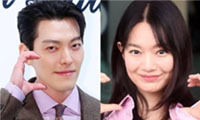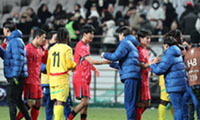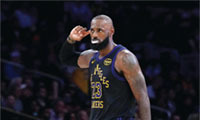▶ FRANK BRUNI
But what I’ve been feeling for and about Hillary Clinton over the last week is sadness. Does she have even a smidgen of privacy left? Can she utter a syllable or think a thought with any assurance that it won’t be exposed, analyzed, ridiculed?
When she was talking decades ago with Diane Blair, whose journals are part of “The Hillary Papers,” she no doubt assumed an audience of one: her dear friend. Her best friend. But this corner of Hillary’s life, like every other, has now been put on public display. Get as close as you like. Gawk. Judge.
I’m not suggesting that The Washington Free Beacon, the news site that presented “The Hillary Papers,” did anything unusual or wrong. By recognizing that an archive of documents at the University of Arkansas hadn’t received much scrutiny and going through it, The Free Beacon provided candid, intimate glimpses of the Clintons that hadn’t existed before. This was indeed a scoop, one that many other media organizations would have been happy to trumpet.
But to absorb it in the context of the endless drip-drip-drip about Hillary over the years was to worry that we’ve lost sight of any boundaries and limits — that maybe even Hillary herself has stopped hoping for anything kinder. When the archive was opened to the public in 2010, she gave a tribute to Blair, who died in 2000.
Details in the documents were fresh. Most of the truths they fleshed out weren’t. We already knew that Hillary had found tortured rationales for Bill’s infidelities. We already knew that her compromised brand of feminism accommodated the vilification of women who dared to threaten the couple’s purchase on power.
What’s at least as interesting is what the documents say about the political arena that the Clintons inhabit: the toll it takes, the cynics it makes. Early in her White House years, Hillary’s guard has already gone up. Blair chats with Janet Reno, Bill Clinton’s attorney general, and writes, in April 1993, that while “Janet wants to connect” with Hillary, she “finds HC a ‘mask.’ ”This is even before the fever pitch of impeachment and the Starr Report in all its lurid detail and the sustained analysis of every provisional hairstyle and the millions of pages by authors determined to turn her into a symbol of this, that or the other. She has been called a Rorschach, but as I read “The Hillary Papers,” I couldn’t stop thinking of her as a carcass. With a tireless zest, we pick her clean.
The latest book about her, “HRC,” by the journalists Jonathan Allen and Amie Parnes, was published last week. It focuses on recent years, and is flattering: The Hillary here is resourceful and diligent and has enough guile and grace to win over the people whom she sets out to.
She’s also obsessed with loyalty, which governs her decisions, leading to bad ones. That’s perhaps inevitable when you’ve been so thoroughly peered and poked at. You do your damnedest to carve out a safe space.
Blair was surely supposed to be that, and it’s not clear why she was taking notes or what she intended to do with them. It’s also not clear that the Hillary in those notes is the truest one. With our friends, yes, we bare our souls. But we also let off steam, allowing ourselves a theatricality and sloppiness that exaggerate our emotions.
Blair’s journals are the kind of material from which biographies and histories have long been woven. But it doesn’t always surface so soon, and it is now augmented by the eavesdropping and tattling of cabinet secretaries (see “Duty,” by Robert Gates) and political allies and handlers eager to make themselves look better, even at a benefactor’s expense (see “Game Change” and the robust genre to which it belongs).
Frenzied media feed on this, to a degree that arguably goes beyond our obligation to keep politicians honest, and it’s troubling in two regards. How many decent, gifted people who contemplate public office look at what someone like Hillary endures and step away? And the people who aren’t scared off: How cold and hard are they, or how cold and hard do they become?
“HRC” recalls that just after the 2008 presidential election, a photo came to light of one of Barack Obama’s speechwriters, Jon Favreau, pretending to cup the breast of a cardboard cutout of Hillary. The image is shocking, but then again not. For a good long while, we’ve done with Hillary as we pleased, frequently looking past her humanity, routinely running roughshod over her secrets. She has gained so much — tremendous influence, significant riches — but lost so much, too. Was that the bargain she expected? Has she made peace with it?
스마터리빙
more [ 건강]
[ 건강]이제 혈관 건강도 챙기자!
[현대해운]우리 눈에 보이지 않기 때문에 혈관 건강을 챙기는 것은 결코 쉽지 않은데요. 여러분은 혈관 건강을 유지하기 위해 어떤 노력을 하시나요?
 [ 건강]
[ 건강]내 몸이 건강해지는 과일궁합
 [ 라이프]
[ 라이프]벌레야 물럿거라! 천연 해충제 만들기
 [ 건강]
[ 건강]혈압 낮추는데 좋은 식품
[현대해운]혈관 건강은 주로 노화가 진행되면서 지켜야 할 문제라고 인식되어 왔습니다. 최근 생활 패턴과 식생활의 변화로 혈관의 노화 진행이 빨라지고
사람·사람들
more
“이민 선구자들에 바치는 헌사”
이진영 감독은 이화여대 언론정보학/영상학과를 졸업하고 하와이로 이민왔다. 하와이 한국일보 기자, KBFD-TV 앵커 등으로 10년간 일하고 2…

김영화 수필가 ‘한국디지털문학상’ 대상
본보 화요칼럼 필진으로 활동하고 있는 수필가 김영화씨가 한국디지털문인협회(회장 김종회)가 주최하는 제4회 한국디지털문학상 공모에서 로 대상을 …
화랑청소년재단 차세대 정체성 리더십 포럼 성료
화랑청소년재단(회장 샘 신)과 화랑인터내셔널(총재 박윤숙)이 주최·주관한 제21회 차세대 정체성 리더십 포럼이 지난 15일 LA 시청에서 20…
제1회 ‘도전! 한국역사퀴즈대회’ 성료
미주한국학교총연합회(회장 이영숙)가 주최한 ‘제1회 도전! 한국역사퀴즈대회’가 지난 15일 부에나파크 하나교회에서 성황리에 열렸다. 선착순 모…
박정희 기념사업회 탄신 108주년 기념행사
미주박정희대통령기념사업회(회장 이재권)는 지난 14일 아로마 센터에서 박 대통령 탄신 108주년 기념 만찬을 개최하고 기념 촬영을 진행했다. …
많이 본 기사
- 380만 건 적체에 멈춘 이민법원… 한인들 ‘신분 위기’
- 토랜스 제일장로교회 EM 목사, 부당해고 소송
- 탁재훈, 아들 얼굴 공개..美 명문대 재학·남다른 피지컬 자랑
- 교황 “극도로 멸시적인 대우” 트럼프 이민정책 거듭 비판
- ‘처가 손절’ 이승기, 부모에 ‘억’ 소리 나는 ‘효도’.. “26억대 타운하우스 증여”
- 267명 탄 여객선 좌초… 9시간만에 전원 구조
- 김우빈♥신민아, 10년 열애 끝에 결혼
- 공화당 선거구 조정안, 텍사스 연방법원서 제동
- ‘엡스타인 파일 공개 법안’ 가결
- 내년 선거 민주당 ‘압도’… 공화당 ‘경고등’
- 가주 주지사 경선구도 ‘안갯속’
- 악뮤 수현, 다이어트로 얼마나 뺀 거야..반쪽된 근황
- 메디케이드 받으면 영주권 신청 거부된… 1
- 고령층 노린 보이스피싱 자금세탁
- [전문가 칼럼] 나이를 잊게 하는 뇌 건강법
- 50년 상환 모기지?… 전문가들 “득보다 실이 크다”
- “정기적인 음악 감상… 치매 위험 감소와 관련”
- 월세 대신 자산 만드는 방법
- 무인도 좌초 여객선 항해사, 휴대전화 딴짓하다가 ‘쾅’
- 로보택시 경쟁 가열… 아마존 죽스 가세
- 구혜선, 벤처기업 대표 변신..특허 취득한 헤어롤 론칭 “완판 기대”
- 올해 스키 시즌 시작 맘모스는 오늘 개장
- “임금 미지급 시 최대 3배 벌금… 주 고용법 강화”
- 친구들과 걷는데 나만 뒤처진다면… “폐 기능 검사 받아보세요”
- 빈살만 극진환대 트럼프…영부인 만찬 … 1
- [수잔 최 변호사의 LIFE &] 서울 가을 자락에서 만난 쉼터
- ‘패스트트랙 충돌’ 1심유죄 벌금형…나경원 “정치항거 명분인정”
- 루카스 미술관 내년 9월 오픈
- 호날두 직접 만난 美 대통령 “아들 앞에서 체면 살아” 농담... 일론 머스크·빈 살만과 함께 ‘백악관 만찬’
- [경제 트렌드] 부유층이 원하는 건 ‘프라이빗 럭서리’
- 트럼프, 조지아 단속에 “난 바보같이… 1
- [송년행사 게시판] 한국외국어대학교- 한국외국어대학교 남가주 동문회
- ‘패스트트랙 충돌’ 나경원·송언석·황교안 등 1심 유죄…벌금형
- 25일 추수감사절 노인잔치 파바월드·시니어센터 주최
- 22기 뉴욕평통 출범식⋯“힘찬 출발” 1
- 의회가 공개 결정 ‘엡스타인 파일’… 정·재계 ‘뇌관’되나
- [지평선] 타이레놀과 아세트아미노펜
- ‘일본 7승-한국 6승-미국 3승’
- [백상논단] 젠지혁명와 유스 액티비즘
- 李대통령 “북핵 고도화 방치안돼…실용적·단계적 한반도비핵화”
- 트럼프, 엡스타인 파일 공개법 서명… “민주당에 역풍 불것”
- 트럼프, 채권 집중 매입 8월 이후 최대 4억달러
- “내연기관부터 자율주행… LA 오토쇼 경험하세요”
- 구글 ‘제미나이3’ 출시 검색창에도 전진 배치
- 재융자 기회 돌아왔나?… 이자율 인하에 재융자 관심↑
- 중간 가구 연소득, 메릴랜드 2위·버지니아 8위
- LA 한국문화원, 스미소니언 ‘이건희 컬렉션’ 설명회 개최
- 북VA 불법 마사지업소 260곳 넘는다
- 푸드스탬프 수혜자 재신청 절차 요구할 것
- 엔비디아 또 ‘사상최고’ 실적… ‘AI거품’ 논란 일축하고 주가↑
1/5지식톡

-
 테슬라 자동차 시트커버 장착
0
테슬라 자동차 시트커버 장착
0테슬라 시트커버, 사놓고 아직 못 씌우셨죠?장착이 생각보다 쉽지 않습니다.20년 경력 전문가에게 맡기세요 — 깔끔하고 딱 맞게 장착해드립니다!장착비용:앞좌석: $40뒷좌석: $60앞·뒷좌석 …
-
 식당용 부탄가스
0
식당용 부탄가스
0식당용 부탄가스 홀세일 합니다 로스앤젤레스 다운타운 픽업 가능 안녕 하세요?강아지 & 고양이 모든 애완동물 / 반려동물 식품 & 모든 애완동물/반려동물 관련 제품들 전문적으로 홀세일/취급하는 회사 입니다 100% …
-
 ACSL 국제 컴퓨터 과학 대회, …
0
ACSL 국제 컴퓨터 과학 대회, …
0웹사이트 : www.eduspot.co.kr 카카오톡 상담하기 : https://pf.kakao.com/_BEQWxb블로그 : https://blog.naver.com/eduspotmain안녕하세요, 에듀스팟입니다…
-
 바디프렌드 안마의자 창고 리퍼브 세…
0
바디프렌드 안마의자 창고 리퍼브 세…
0거의 새제품급 리퍼브 안마의자 대방출 한다고 합니다!8월 23일(토)…24일(일) 단 이틀!특가 판매가Famille: $500 ~ $1,000Falcon: $1,500 ~ $2,500픽업 & 배송직접 픽업 가능LA…
-
 바디프렌드 안마의자 창고 리퍼브 세…
0
바디프렌드 안마의자 창고 리퍼브 세…
0거의 새제품급 리퍼브 안마의자 대방출 한다고 합니다!8월 23일(토)…24일(일) 단 이틀!특가 판매가Famille: $500 ~ $1,000Falcon: $1,500 ~ $2,500픽업 & 배송직접 픽업 가능LA…
케이타운 1번가
오피니언
 수잔 최 한미가정상담소 이사장 가정법 전문 변호사
수잔 최 한미가정상담소 이사장 가정법 전문 변호사 [수잔 최 변호사의 LIFE &] 서울 가을 자락에서 만난 쉼터
 강민수 을지대 첨단학부 교수 한국인공지능학회장
강민수 을지대 첨단학부 교수 한국인공지능학회장 [기고] 디지털 주권의 토대, 소버린 클라우드
 이숙종 성균관대 국정전문대학원 특임교수
이숙종 성균관대 국정전문대학원 특임교수 [백상논단] 젠지혁명와 유스 액티비즘
 박연실 수필가
박연실 수필가 [윌셔에서] 틈과 행간 사이를 서성이며
 이동현 / 한국일보 논설위원
이동현 / 한국일보 논설위원[지평선] 타이레놀과 아세트아미노펜

[왈가 왈부] ‘한미협상 국회 비준’ 갑론을박… 외교는 ‘국익’이 먼저죠
 정숙희 논설위원
정숙희 논설위원사라진 백악관의 이스트 윙
 파리드 자카리아 워싱턴포스트 칼럼니스트 / CNN ‘GPS’ 호스트
파리드 자카리아 워싱턴포스트 칼럼니스트 / CNN ‘GPS’ 호스트 계속되는 민주당의 헛손질
 김동찬 시민참여센터 대표
김동찬 시민참여센터 대표 [미국은 지금] 미국 정치의 파산과 그 댓가
1/3지사별 뉴스

22기 뉴욕평통 출범식⋯“힘찬 출발”
22기 민주평화통일자문회의 뉴욕협의회(회장 이시화)는 17일 퀸즈 플러싱 소재 코리아빌리지 디모스 연회장에서 자문위원 173명을 비롯한 한인사…
메디케이드 받으면 영주권 신청 거부된다

“북은 위험…비핵화 시도 포기해서는 안돼”
조지타운대 국제대학원의 한국정책클럽(KPC, 회장 문요한)은 지난 18일 트럼프 1기 행정부에서 대북특사를 역임했던 마크 램버트(Mark La…
MD 최저임금 25달러 되나?

오프라인 한국어 과정 성공적 마무리 단계
샌프란시스코 한국 교육원(허혜정 원장)이 2025년 가을 학기에 처음 개설한 오프라인 한국어 과정 ‘한국어 1’이 오는 22일 성공적인 마무리…
마라나타 비전교회, 장로/안수집사 임직및 장로 은퇴예배

오늘 하루 이 창 열지 않음 닫기 


















































.png)


댓글 안에 당신의 성숙함도 담아 주세요.
'오늘의 한마디'는 기사에 대하여 자신의 생각을 말하고 남의 생각을 들으며 서로 다양한 의견을 나누는 공간입니다. 그러나 간혹 불건전한 내용을 올리시는 분들이 계셔서 건전한 인터넷문화 정착을 위해 아래와 같은 운영원칙을 적용합니다.
자체 모니터링을 통해 아래에 해당하는 내용이 포함된 댓글이 발견되면 예고없이 삭제 조치를 하겠습니다.
불건전한 댓글을 올리거나, 이름에 비속어 및 상대방의 불쾌감을 주는 단어를 사용, 유명인 또는 특정 일반인을 사칭하는 경우 이용에 대한 차단 제재를 받을 수 있습니다. 차단될 경우, 일주일간 댓글을 달수 없게 됩니다.
명예훼손, 개인정보 유출, 욕설 등 법률에 위반되는 댓글은 관계 법령에 의거 민형사상 처벌을 받을 수 있으니 이용에 주의를 부탁드립니다.
Close
x